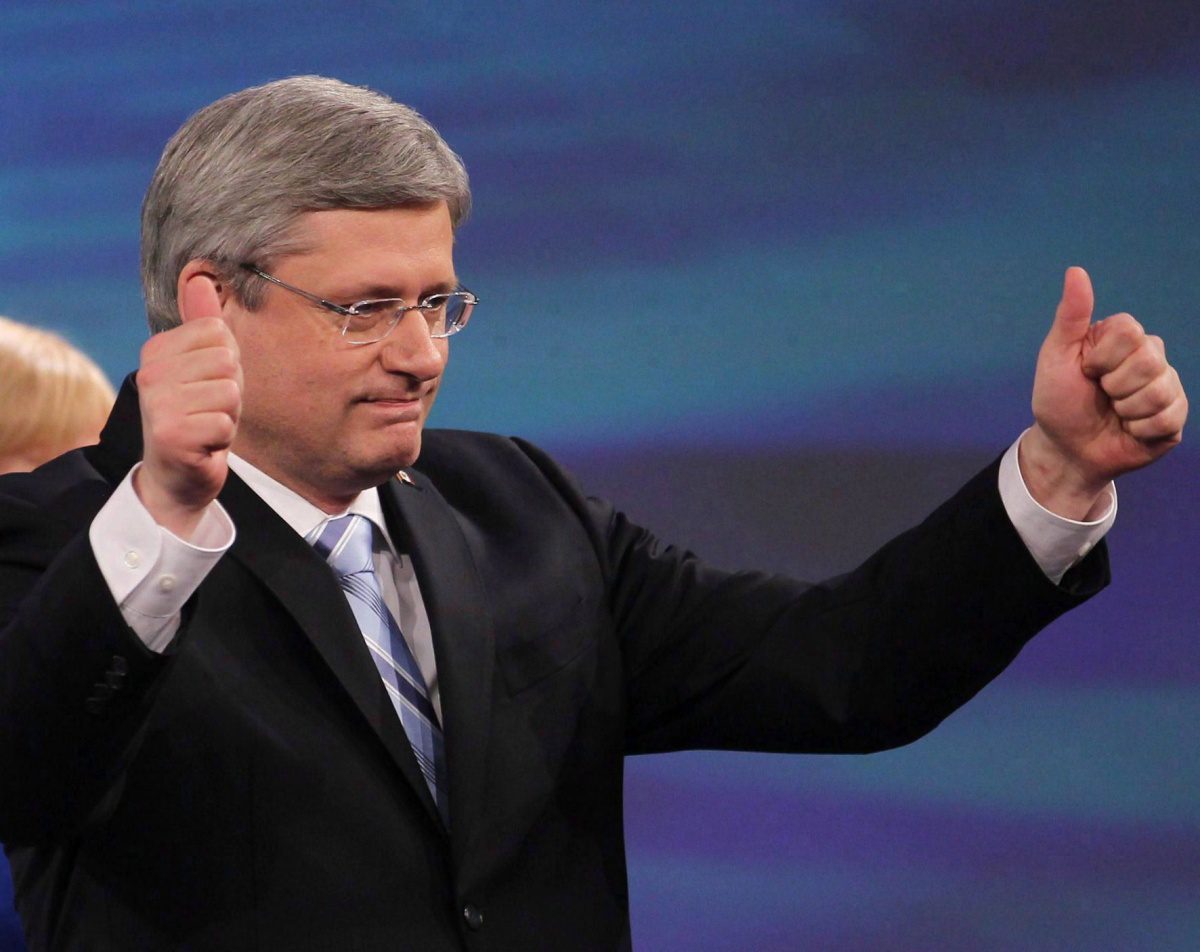I certainly didn't expect to write two columns about former Prime Minister Stephen Harper in the first half of 2018. But as the Canadian Press noted, he's made a number of headlines in the past few weeks after two years of relative silence not just for his dubious congratulations to Hungarian President Viktor Orbán, but for his forthcoming book on the global rise of populism, his praise for U.S. President Donald Trump's decision to pull out of the nuclear deal with Iran, and, most recently, his comment to an audience at the Stanford Graduate School of Business that he could "easily" be leader of the Conservative Party to this day, if he wished.
That may sound arrogant, and like a sign that Harper is still lurking, but it's perfectly true. The Tories as we know them today owe the lion's share of their success and, frankly, their existence from 2006 to 2015 to him. If you watch the full 55-minute video of his discussion at Stanford, he will articulate why that is better than I could. But his thoughts on his own potential for further leadership are hardly the most important takeaway from the discussion. Here are a few you may have missed:
Ideological conservatives, social or economic, were never going to have a true friend in Stephen Harper. As he puts it, his conservatism is more temperamental than ideological, which is why his time as prime minister was characterized by incremental change instead of the institutional overhaul that some Tories might have liked. He contrasts his approach with that of "blueprint politicians," who are eager to push through their own agendas without taking into account the material impact on their citizens.
He believes this is why populism is on the rise. Without mentioning specific examples, Harper speaks of this in the context of trade negotiations, suggesting some concessions are necessary in order to maintain public support and ward off feelings of alienation. (This applies to ardent free traders and protectionists, he clarified.) Fundamentally, he believes voters are always right, and they are most likely to form their opinions of a policy based not on theory, but how it affects them personally or, at least, their perception of the effects.
He believes social mobility is key to avoiding public division. Compared to the U.S., Harper says, Canada has managed to keep our elite/everyday divide (to the extent we have one) from getting too acrimonious, because it's generally easier for Canadians to move up from the circumstances of their birth. After all, he adds, look at him: a middle-class kid who went to public schools, got his start in the mailroom of an oil company, and became prime minister. Coming from a middle-class background myself, I'll let others rebut that if they wish.
He believes it is more accurate to describe Canada as "intercultural" instead of "multicultural." In the intercultural model, which Harper believes is best exemplified by Quebec (cough), everyone is free to enjoy the trappings of their own background while engaging in cross-cultural exchange and dialogue, whereas the multicultural model takes too few pains to avoid self-segregation. He adds that Canada has always been this way, having gotten its start as an English and French nation, and there has never been a uniquely Canadian archetype. Yes, he said this.
He believes it is possible to maintain public support for immigration as long as it is legal. Harper says illegal immigration will never be popular anywhere, and allowing it to go unchecked can be harmful to support for immigration as a whole. Thus, he says, the response to illegal immigration should be "regular." As for legal immigration, he says, basing Canada's intake on labour-market needs with some room for humanitarianism has been a success.
As prime minister, he was afraid to name his favourite hockey team. I can't tell if he's kidding or if he was really that voter-whipped. When pressed, he says he is a fan of the Calgary Flames and the Toronto Maple Leafs, having lived in both cities, but will take any Canadian team that can win the Stanley Cup. Perfectly calculated as ever, short of throwing the Habs in there as a sop to Quebec.
At no point did he say the name "Justin Trudeau." "The current prime minister," yes, but not his name. Either he had no wish to sound like the shadow Leader of the Opposition, or he feels compelled to spit whenever he says or hears the name. Probably the former, but the latter is more fun.
Written by Jess Morgan






